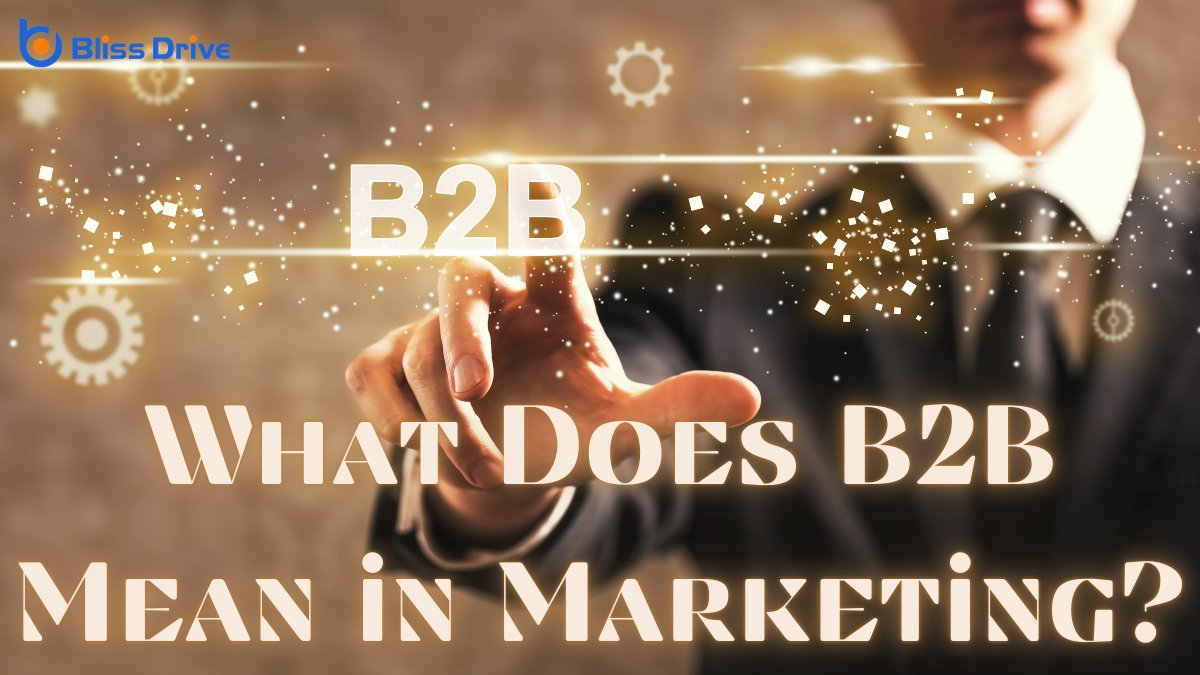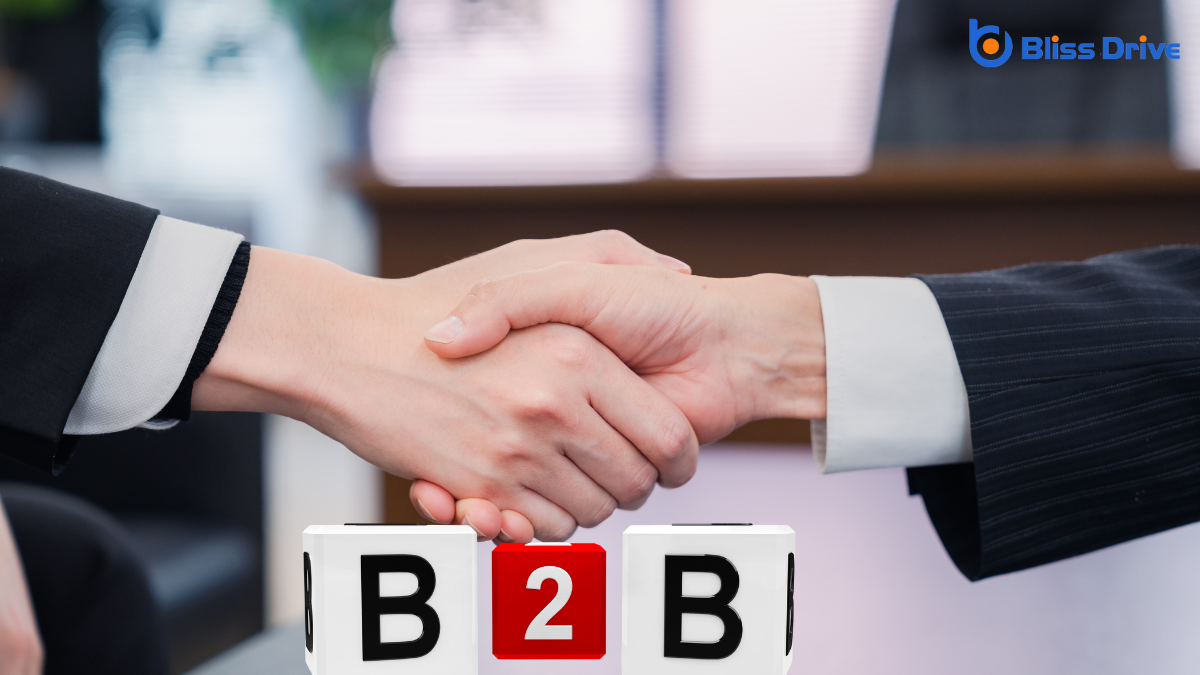Learn More About Us

In marketing, B2B, or business-to-business, involves transactions between companies rather than with individual consumers. This approach is all about understanding the unique needs of our organizational clients and building long-term partnerships. We focus on efficiency, ROI, and personalized communication to align with business goals. How do we navigate the complexities of B2B marketing and guarantee success in this dynamic landscape? Let's explore the strategies and insights that drive effective B2B interactions.
When we talk about B2B marketing, we're referring to the process where businesses sell products or services to other businesses rather than individual consumers. This approach focuses on meeting the specific needs of other companies.
Unlike B2C marketing, which targets everyday customers, B2B marketing is about building strategies that appeal directly to business clients.
We explore the details of what makes a business tick, understanding their pain points and goals.
We recognize that every business has unique needs, and we tailor our marketing efforts to address those. It's all about creating value and offering solutions that help businesses operate more efficiently.

Understanding the distinct needs of businesses lays the groundwork for what truly matters in B2B marketing: relationships. We can't stress enough how essential building strong connections is to our success. By nurturing long-term partnerships, we guarantee mutual growth and resilience in competitive markets.
Trust and communication are the backbone of these relationships, allowing us to collaborate effectively and deliver tailored solutions. When we invest time and effort into understanding our partners' challenges and goals, we create value that goes beyond mere transactions.
Let's not overlook the role of consistency and reliability. By demonstrating commitment and follow-through, we reinforce our reputation as dependable partners.
These relationships require ongoing attention and adaptation, guaranteeing we stay aligned with evolving business needs and industry trends.
As we explore the key differences between B2B and B2C marketing, we'll notice clear distinctions in target audience.
In B2B, we address businesses, requiring a deeper understanding of organizational needs and complex decision-making processes.
This contrasts with B2C, where our strategies focus more on individual consumers and their personal buying behaviors.
While businesses in both B2B and B2C sectors aim to satisfy their respective customers, the target audiences differ markedly in their motivations and decision-making processes.
In B2B marketing, we're dealing with businesses that prioritize efficiency, ROI, and long-term partnerships. Our focus is on building relationships with decision-makers who often have specific needs and industry knowledge. They're looking for solutions that enhance their company's performance.
In contrast, B2C marketing targets individual consumers driven by personal preferences, emotional responses, and convenience. Our messaging here is more about appealing to personal benefits, desires, and immediate satisfaction.
Understanding these differences is essential for crafting effective marketing strategies. By recognizing what drives each audience, we can tailor our approach to meet their unique needs and expectations.
How do B2B and B2C decision-making processes diverge so markedly? In B2B, decisions are more complex, involving multiple stakeholders. We often deal with committees and extended evaluation periods. This requires thorough research, as business solutions must meet specific organizational needs.
We’re not just selling a product; we’re offering a solution that impacts business operations.
On the other hand, B2C decisions are usually quicker and influenced by individual preferences. Consumers can make emotional purchases based on personal desire, brand loyaltyThe tendency of consumers to continue buying the same brand's products or services., or trends. The stakes aren't as high compared to B2B, where purchasing decisions can affect entire companies.
Understanding these fundamental differences helps us tailor our approach, ensuring we address the unique needs and motivations of each target audience effectively.
When it comes to marketing strategies, B2B and B2C require distinctly different approaches due to their unique audiences and objectives.
In B2B marketing, we're targeting businesses needing specific solutions, so our focus is on building relationships through informative content and long-term trust. These decisions involve multiple stakeholders, and the buying process is often longer and more complex.
In contrast, B2C marketing aims to connect with individual consumers, emphasizing emotional appeal and quick, engaging messages. Here, it's all about capturing attention and driving immediate purchases.
Our strategies must adapt to these differences, ensuring our messaging aligns with the needs and preferences of each audience. By understanding these contrasts, we can craft campaigns that effectively reach and resonate with our intended market.
To achieve success in B2B marketing, we must focus on targeted strategies that align with our business goals and customer needs. Understanding our target market is vital, so let’s start by defining our ideal client profiles. This helps us tailor our messaging and approach effectively.
We’ll also need to prioritize building strong relationships through personalized communication and trust-building activities. Networking and attending industry events can provide valuable insights and connections.
Additionally, leveraging content marketingA strategic approach focused on creating and distributing valuable, relevant, and consistent content... by providing valuable, informative materials can position us as thought leaders in our field.
Finally, measuring our results is fundamental. By analyzing data and adjusting strategies, we guarantee continuous improvement.
Together, these strategies create a thorough approach to B2B marketing success.

Although technology has always played an essential role in B2B transactions, its impact today is more transformative than ever. We see it enhancing communication, streamlining operations, and improving efficiency.
Digital platforms and tools enable us to connect with partners globally, breaking down geographical barriers. Automation simplifies complex processes, allowing us to allocate resources more effectively.
Furthermore, data analytics offers insights into customer behavior, guiding our strategies and decision-making. With cloud computing, we can store and access vast amounts of information securely and conveniently.
Cybersecurity measures guarantee our transactions remain safe, building trust with our partners.
Technology also supports personalized experiences, customizing interactions based on specific needs. Embracing these advancements not only keeps us competitive but also positions us to adapt swiftly to market changes.
Understanding how to measure success in B2B marketing is vital for optimizing our strategies and achieving our goals. We can’t afford to rely on guesswork when it comes to evaluating our efforts. Metrics provide clear evidence of what works and what doesn't, helping us make informed decisions.
We should consider:
Charting the landscape of B2B marketing presents its own set of challenges, often testing our adaptability and strategic thinking. One significant hurdle we face is building strong, lasting relationships with other businesses. Unlike B2C, where customer interactions might be brief, B2B requires continuous engagementThe interactions that users have with a brand’s content on social media. and trust-building.
We also encounter the challenge of longer sales cycles. Decisions in B2B often involve multiple stakeholders, which can slow down the process.
Another difficulty is staying ahead in an increasingly competitive market. Crafting a unique value propositionA statement that clearly explains the benefits of a product or service and why it is better than the... that resonates with diverse businesses' demands requires creativity and insight.
Additionally, integrating new technologies while managing budget constraints can be tricky. We must constantly refine our strategies to overcome these obstacles and achieve success in the ever-evolving B2B landscape.

As we tackle these challenges, it's imperative to keep an eye on the horizon and anticipate the future trends shaping B2B marketing.
Our industry is evolving rapidly, and understanding these trends is essential for staying competitive.
Let's explore three key areas that are likely to define the B2B landscape in the coming years:
In the ever-evolving world of B2B marketing, we must prioritize building strong relationships and understanding our clients' unique needs. By leveraging data-driven insights and embracing technology, we can craft personalized strategies that deliver measurable results. Let’s focus on fostering trust and ensuring alignment with market trends to overcome challenges and seize future opportunities. Together, we’ll drive success and innovation in the B2B space, ensuring our strategies remain effective and relevant.
